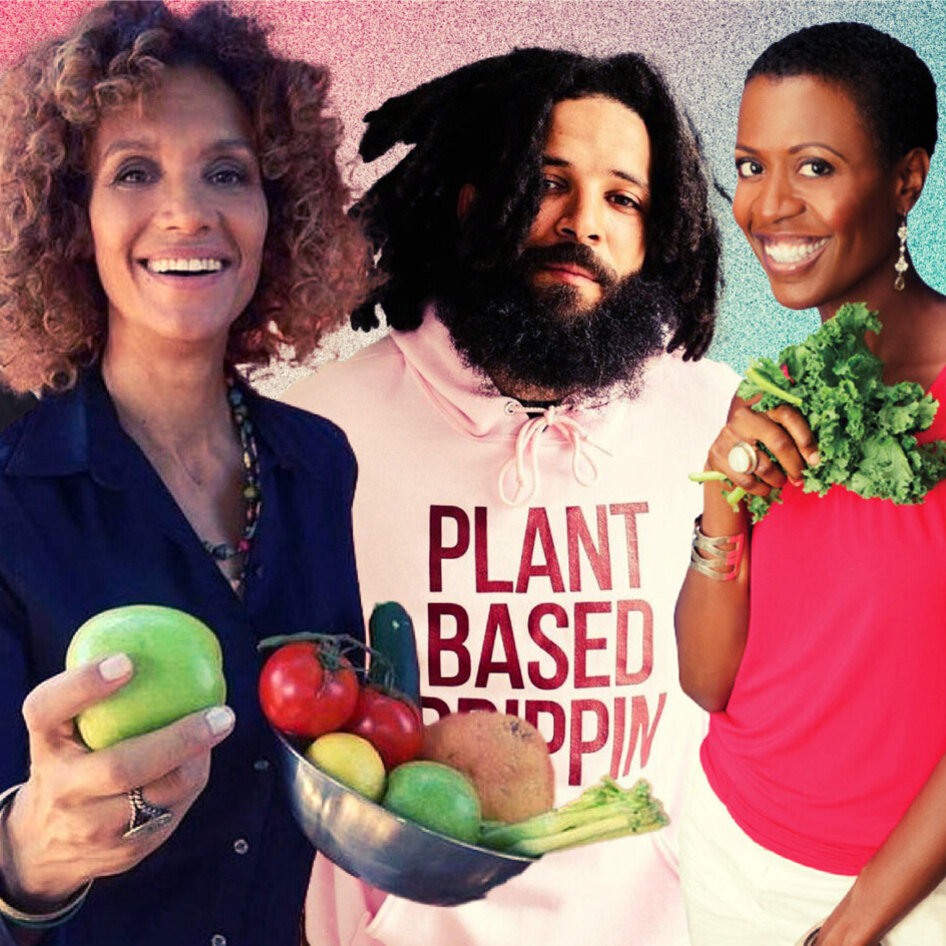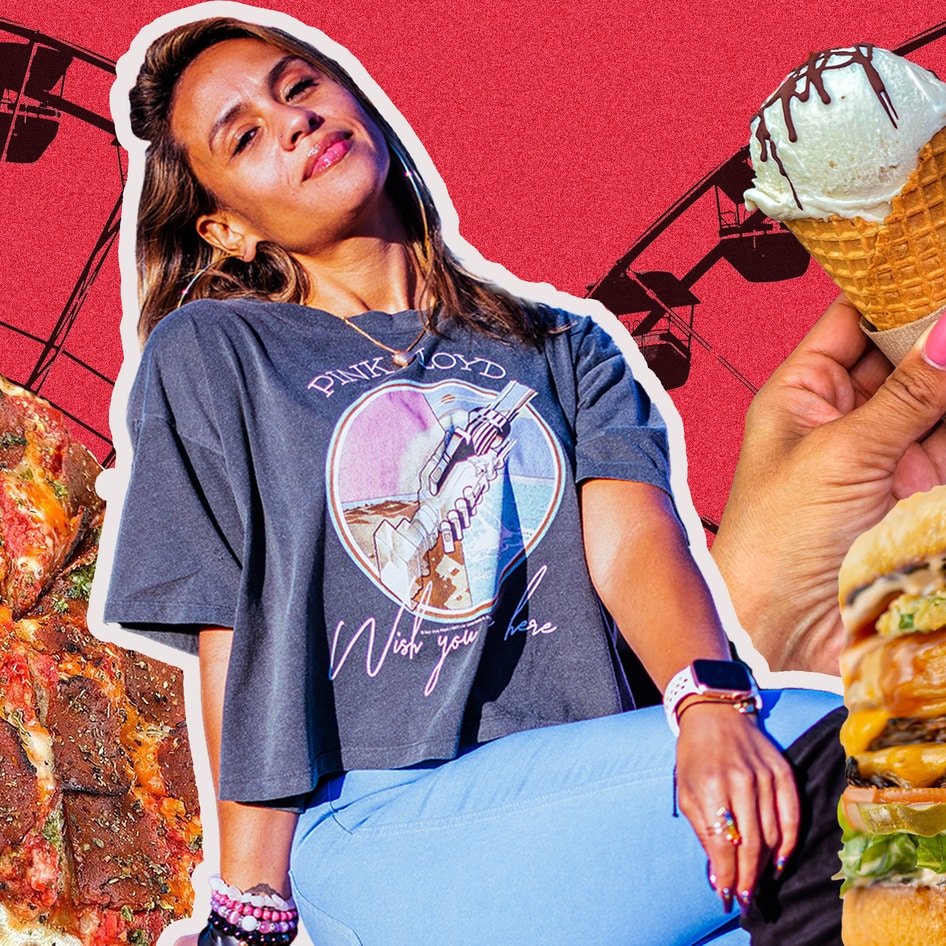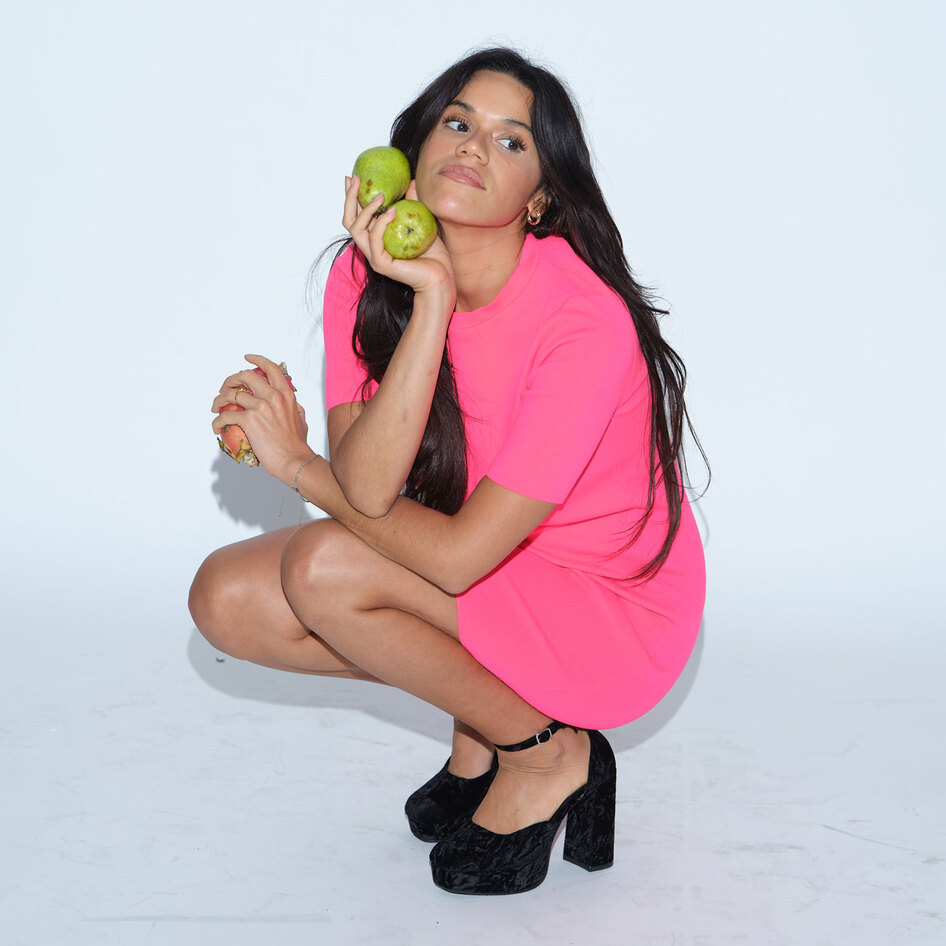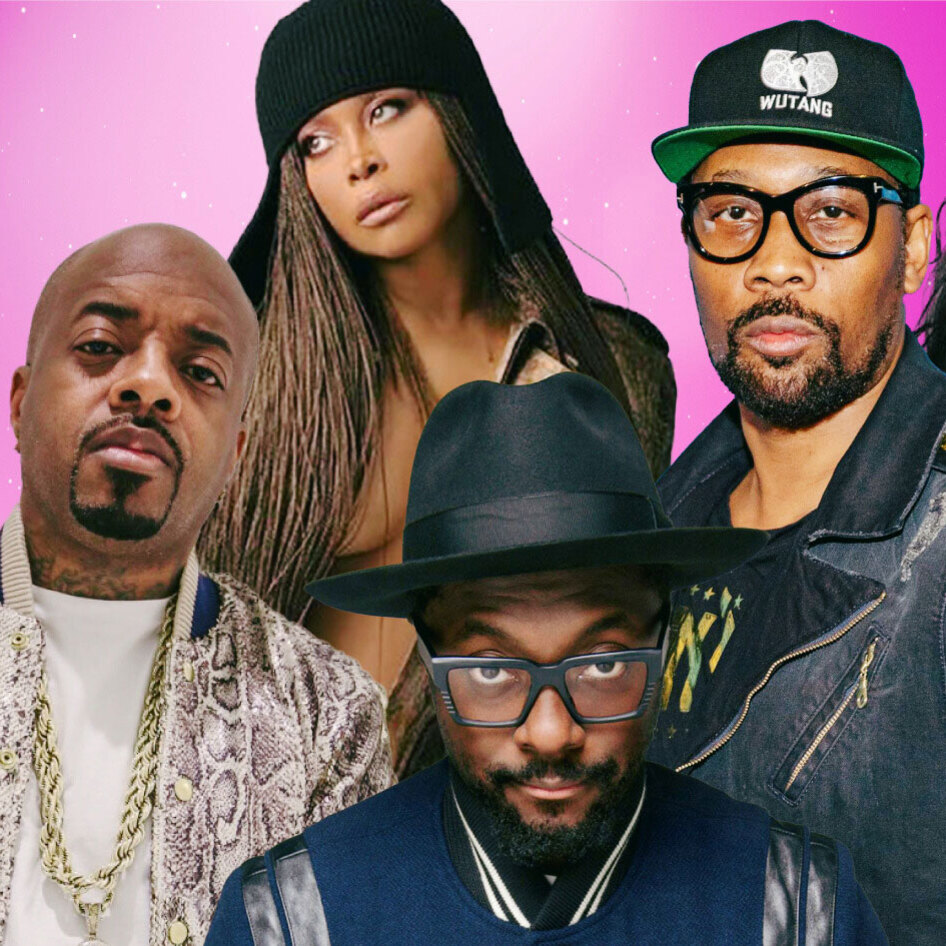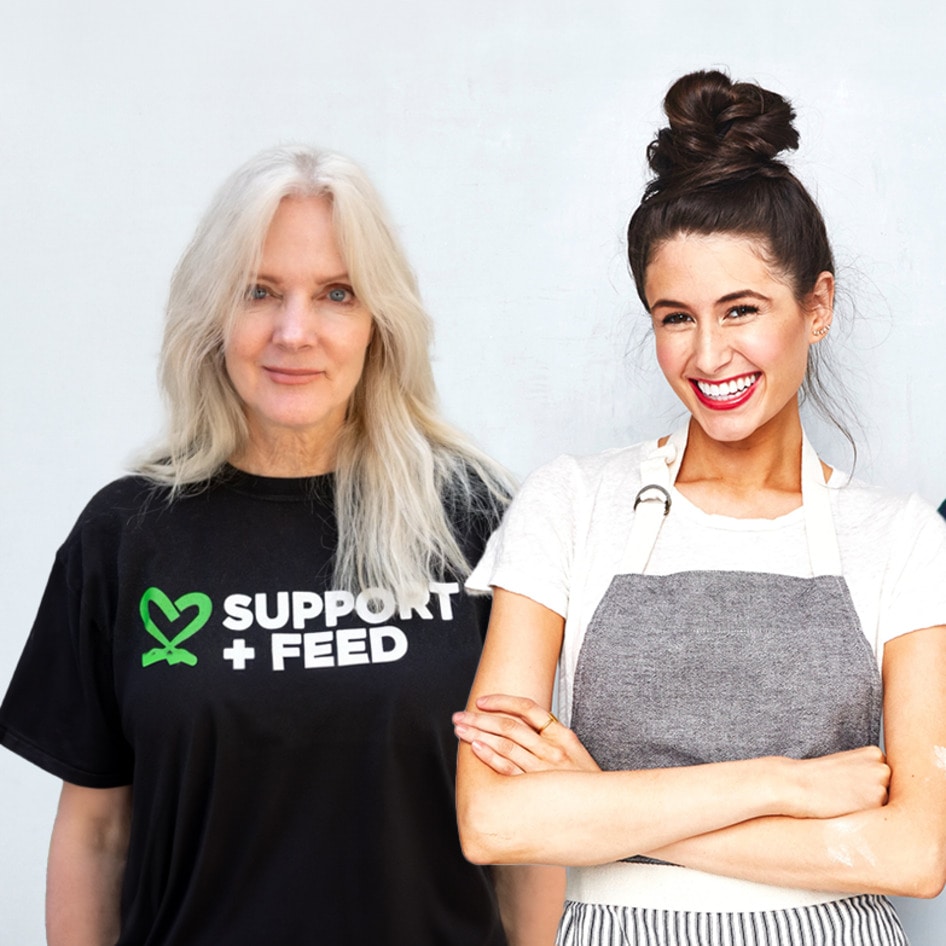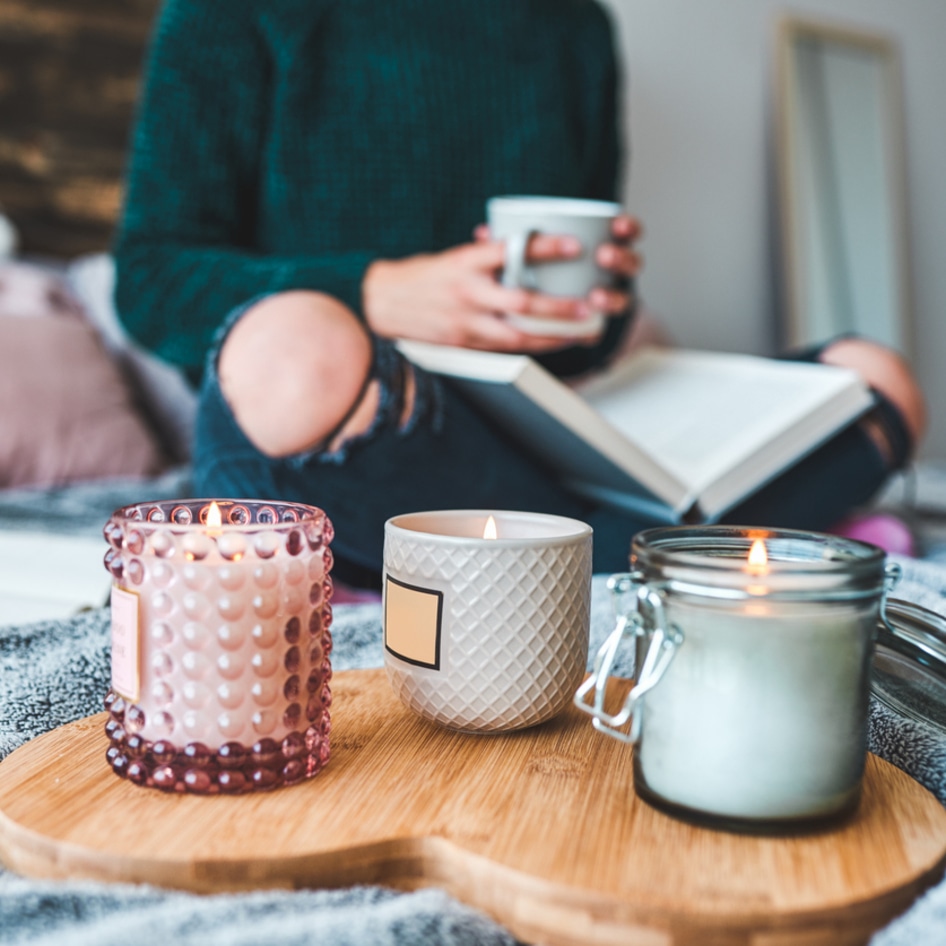VegNews Music Week: Justin Bua Raps About the Ethics of Hip-Hop and Veganism
Whether he’s portraying the urban landscape he grew up in or discussing plant-based nutrition, Justin Bua conveys an unbridled passion in his art and diet.
June 3, 2013
New York native Justin Bua has become a household name in the art world for his original style of portraiture and detailed, urban-infused aesthetic. Bua is also active in the vegan community as an advocate for a healthy plant-based diet—he has a knack for converting his friends and fellow musicians to cruelty-free eating. We got a chance to chat with Bua about his own vegan transformation, his upcoming projects, and the common threads between hip-hop and veganism.
VegNews: What was your progression into veganism like?
Justin Bua: When I was married, my ex-wife brought me to a retreat with raw food guru David Wolfe. I was eating primarily processed foods and fast foods. I grew up basically on a fast food acronym diet—Mickey D’s, KFC, MSG—so I had no awareness about what real food was. So when I went to this raw food retreat, I kind of freaked out. I escaped and drove around in a food desert in the middle of Arizona looking desperately for a KFC. I couldn’t find one, and so for the first time in my life I was forced to eat what I thought was a gigantic, weird bush—which was actually kale. I started feeling better, looking better, and started to have more energy and clarity. It was like the fog lifted from my consciousness and I saw things with a lucid eye for the first time. Then I started to read all of the books: Eric Schlosser’s Fast Food Nation, John Robbins’ Diet for a New America and The Food Revolution, Howard Lyman’s Mad Cowboy, David Wolfe’s The Sun Food Diet Success System and Eating for Beauty. All of that really started to have an impact on me. And I was like, “Wow, I’ve been bamboozled this whole time.” And that bamboozling was way beyond nutrition. It went into the economics, the politics, the social welfare of animals, and how there’s this whole slave industry. I thought, “I don’t want to be a part of this too,” and I started to see what they were doing to animals. That took it to another level.
VN: So it started off as sort of a health experiment and then the ethics came up?
JB: It started off as, “Wow, these people really know a lot more than I do.” David Wolfe was knowledgeable and I was lucky that I ran into him, because he was able to explain things scientifically. That was about 17 years ago. Yeah, it’s been a minute. I was vegan when people were like, “What is that, are you ok?” And I was like, “Yeah, it’s a lifestyle choice, it’s a diet,” and they were like, “Oh I thought you had a disease.”
VN: What else was going on at that time, in terms of your career?
JB: It really affected my work schedule. I had more energy and more clarity with my vision. Because of my transformation, I wasn’t getting sick anymore. I wasn’t feeling tired, I wasn’t feeling burnt out. So my vision of who I was as an artist started to transform. I had an energy boost and a greater ability to reflect on why I do the things that I do artistically.
VN: What shaped your artistic style and focus on urban culture?
JB: None of it was premeditated. When I went to Art Center College of Design in Pasadena, everyone was drawing like their contemporaries. But for me it was always just drawing people with guns, crazy people, because I grew up in Harlem with characters who were really insane. I grew up with a lot of homeless people and destitute people and transvestites and transsexuals and drug dealers and prostitutes and murderers. When hip hop came around, I was right there in the epicenter of it. My era was the time before [Mayor] Giuliani came in and cleaned up the city, so there were all of these Wild West mentalities there. It was very easy for me as I got more of a skill set to say, “This is what I want to do.” This is my world. This is what I do.
VN: Were you involved in hip hop at that time?
JB: Oh yeah, totally. Grandmaster Flash and the Furious Five, Funky Four Plus One More, you know, the real guys, The Fearless Four, Run DMC, LL Cool J, Kool Moe Dee, Big Daddy Kane. I was a professional breakdancer too, so I was dancing to all of their music.
VN: How do you view the increasing overlap between hip hop and pop music?
JB: Well, everything is going to change and evolve. You have Nicki Minaj, she’s sort of pop and she’s hip hop. Lil Wayne is kind of pop and hip hop. It’s a formula. So it’s not really the people that have changed, it’s the industry, because they know what makes money. And at the end of the day, it’s all about what makes money. But there’s still pure hip-hop from the streets and that will last until it gets played out and exploited. I think that there’s always gonna be something new and something swelling, but hip-hop, the way that it was, is dead. It’s a movement—now it’s like you turn on Sirius[XM] and listen to the Old School station to listen to Whodini and Run DMC and the Beastie Boys. I didn’t realize Beastie Boys were old school. To me, they’re as fresh now as they always were.
VN: What vegan hip-hop artists inspire you?
JB: Mike D [Beastie Boys] is vegan. Some of Wu Tang’s vegan, and KRS-One is vegan, I think the RZA [Wu-Tang Clan] is vegan, and Russell Simmons. There are a lot of vegans. MC Lyte—I turned her vegan, [actually]. I have the biggest turnover of non-vegan-to-vegan ratio of anybody alive. Anyone who comes into contact with me is vegan.
VN: How do you do it?
JB: I know how to access somebody’s mind. A lot of guys are like, “I need meat for my protein.” I’m like, “Ok let’s go to the gym together. Work out with me, and we’ll take it from there.” So they work out with me and they’re like “Damn Bua you go hard, you’re crazy man. Are you a professional athlete?” Then you find a soft spot with animals, and I just attack it from there. You have to know what makes them tick. Everybody has the ability to change. Like my mom, I turned her vegan. She didn’t really care about being healthy. I got her on the animal tip. She’s like “You’re right, you’re right. I love animals and I’m eating them.” Everybody has the ability to transform.
VN: Ne-Yo recently went vegan too.
JB: Who do you think turned him vegan? I’ve been pushing Ne-Yo to go vegan forever. Next thing you know he’s made the announcement.
VN: How do the principles and ethics behind hip-hop and veganism ultimately tie together?
JB: I grew up hanging out with people like Afrika Bambaataa, who is the father of hip-hop; he was talking about veganism back then. There was already a very serious ethical understanding of animals and how bad the industry was. Bands saw what I see now, which is that hip-hop is a countercultural, subversive movement that isn’t going to listen to the powers that be. Real hip-hop is about clarity; it’s about finding the truth and singing about it. Digging into veganism is finding the truth. People say, “Oh, vegans are so preachy.” That’s funny because I just watched 10 McDonalds commercials today that reached 150 million people in one minute. Meanwhile, you’re telling me I’m preachy because I’m talking to one person in one day. I think that veganism is really the truth—it’s the way that we should be eating. It’s not overproduced like pop. Pop [music] is overproduced—so are processed foods. Pop is like creamsicles mixed with fudge mixed with bacon flakes and genetically modified soy and corn. And it tastes amazing! I listen to pop music all the time, but is it good for me? No. What I’m going to get from a Run DMC song is going to be amazing. They’re talking about about social inequalities. They’re talking about injustices. They’re singing with purity. It feels like Zeus singing when you hear DMC’s words. Same with Grandmaster Flash and the Furious Five. It’s poetry. It’s the same thing with veganism, same thing with eating pure.
VN: In a previous interview, you said that when Tupac said, “Let’s change the way we eat,” he was talking about veganism. Do you still think that’s time?
JB: Absolutely. If you look at his messages and his trajectory, I think that he was well on his way. I feel like he was one of those people who was so ahead of his time that the next step for him was veganism. I mean, he said, “Let’s change the way we eat.” What does that mean? Get off fast foods? I think it was beyond that because his mind was beyond that. You can only think that he was there.
VN: Is any of your work directly veganism-related?
JB: I’m developing the Bua Bar. The Bua Bar is a chocolate bar made raw, vegan, and organic, that tastes so good it should be bad. It’s got old-school flavor and new-school nutrition. All of the raw chocolate bars that are out there right now, I’m not really feeling. I wanted to create something that reminds me of when I was young, when I used to rack up on the Hershey’s and the Snickers and the Milky Ways. So I created the Bua Bar, which actually tastes as creamy and chocolaty and delicious [as my childhood favorites]. It’s gonna be on the market soon. I’m also starting Bua University where I teach 150 classes online. I’ve got two TV shows in development right now—one’s slotted to shoot six episodes soon. And I’m doing a lot of commissions. I just finished six pieces for Ne-Yo. I’m doing another piece for a basketball player.
JUMP TO ... Latest News | Recipes | Guides | Health | Shop

